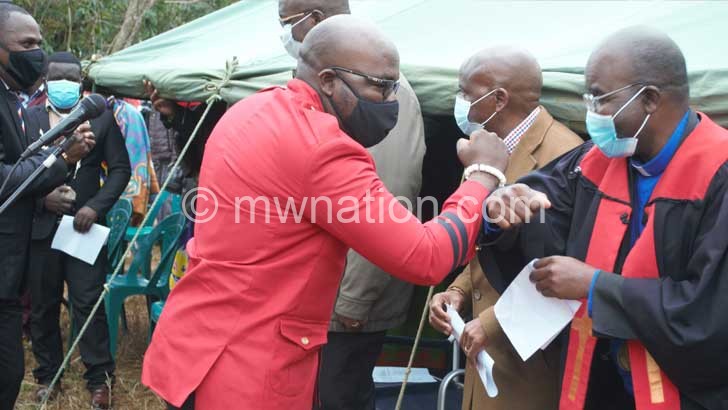Malawi needs healing—minister
Minister of Civic Education and National Unity Timothy Mtambo says they will conduct nationwide consultations to establish a National Truth and Reconciliation Commission to facilitate a national healing process.
Speaking at a press briefing in Mzuzu on Monday after the July 20 2011 Memorial Service, Mtambo said the ministry will also spearhead the formulation and adoption of the National Unity Policy and the finalisation and adoption of the National Civic Education Policy.
He said: “Due to notable atrocities and gross human rights abuses inflicted on some Malawians, including the 20 July, 2011 victims, there has been a growing anger and hatred among some sections of our society which has often undermined the pursuit of a shared developmental purpose as a nation.
“Some sections of Malawians have wounds inflicted by repression of past regimes. The need for Malawi to heal from its past wounds is long overdue.”

The minister said Malawi is divided because previous governments have championed “regionalism, religionism and linguism” which have disrupted national unity.
Said Mtambo: “Malawi saw the dawn of political pluralism in 1993 but did not heal. Our country has just changed leaderships but it needs to heal. It is this lack of healing that has made politicians to keep referring to old atrocities. Such irresponsible thinking does not build the nation.”
Asked if this will not be a duplication of roles since the country has the office of the Ombudsman and that the country had a similar commission before, the minister said: “We will conduct as much consultations as possible so that the commission is born out of that process. But the need for a national healing cannot be debated.”
On the national unity policies, Mtambo said the proposed policies will strive to entrench national service in Malawi to inculcate in the new generation the habits of work, sense of duty and a call to be of use to neighbors and the world.
He said the National Initiative for Civic Education Trust will implement the ministry’s designed programmes and initiatives.
In reaction, head of Centre for Peace and Conflict Resolution in the Faculty of Social Science at the University of Malawi’s Chancellor College, Mustapha Hussein, said Malawi needs such a commission because some Malawians are still living with anger and trauma due to past atrocities.
He said the country previously had the National Tribunal whose work in the national healing process “did not go deep enough”.
Said Hussein: “There is still work to be done, particularly on the atrocities committed during the one-party State. Those who were victimised and/or exiled during this period need proper healing.
“We also have some incidents during the multiparty era, including those victimised during the July 20 2011 demonstrations. All these need healing.”
He advised government to consult the academia, including those at his institution, on how best to set up the commission.
In the book Democratisation in Malawi: A Stocktaking, Professor Kenneth Ross and Professor Kings Phiri justify the need of such a commission.
They write: “When a people has passed through the trauma of being subject to a regime which has practised egregious human rights abuses, there is need for a “naming” of what has occurred, and this is what can be achieved by a Truth Commission. A full account of all atrocities and violent acts is what we owe to the victims.”
The book further says to dodge the issue may be politically expedient but it is unlikely to provide a solid foundation for the future.





